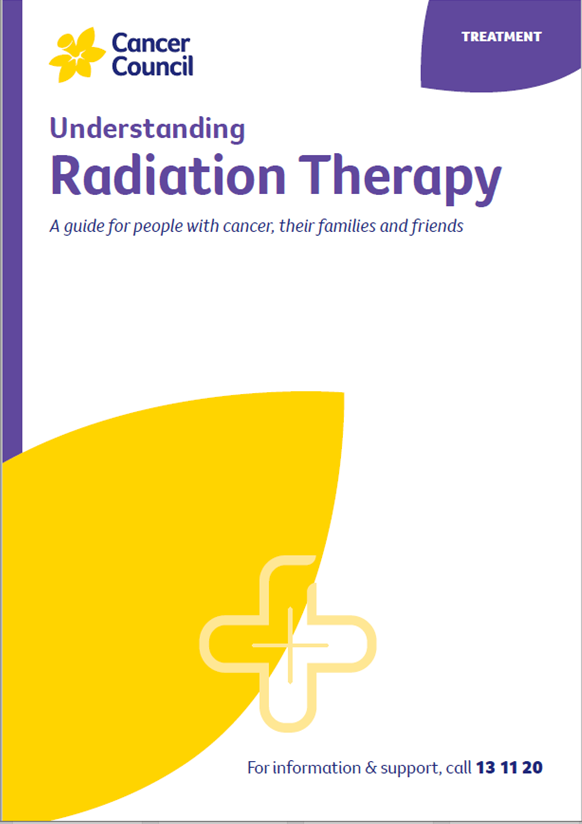- Home
- Prostate cancer
- Management and treatment
- Radiation therapy
- Side effects of radiation therapy
Side effects of radiation therapy
The side effects you experience will vary depending on the type and dose of radiation, and the areas treated. You may experience some of the following side effects. Most side effects are temporary and tend to improve gradually in the weeks after treatment ends, though some may continue for longer.
Some side effects may not show up until many months or years after treatment. These are known as late effects. Talk to your doctor or treatment team about ways to manage any side effects you have.
Learn more about:
Short-term side effects
| fatigue | The effects of radiation on your body may mean you become tired during treatment. Fatigue may build up during treatment and usually improves 1–2 months after treatment ends, but occasionally can last up to 3 months. |
| urinary problems | Radiation therapy can irritate the lining of the bladder and the urethra. This is known as radiation cystitis. You may pass urine more often or with more urgency, have a burning feeling when urinating or a slower flow of urine. If you had urinary issues before treatment, you may be more likely to have issues with urine flow. If you see blood in the urine, tell your doctor as this may need treatment. If you are unable to empty your bladder (urinate) right after brachytherapy, you may need a catheter for a few days or weeks. |
| bowel changes | Radiation therapy can irritate the lining of the bowel and rectum. You may have smaller and more frequent bowel movements, need to go to the toilet quickly, or feel that you can’t completely empty the bowel. Less commonly, there may be some blood in the faeces (poo or stools). If this happens, let your doctor know as there are treatments that can stop the bleeding. |
| ejaculation changes | You may notice that you feel the sensation of orgasm but ejaculate less or no semen after radiation therapy. This is known as dry orgasm, which may be a short-term or permanent side effect. In some rare cases, you may experience pain when ejaculating. The pain usually eases over a few months. |
Long-term or late effects
| infertility | Radiation therapy to the prostate usually causes infertility. If you might want to have children, speak to your doctor before treatment about sperm banking or other options. |
| urinary problems | Bladder changes, such as frequent or painful urination, can appear months or years after treatment. After brachytherapy, scarring can develop around the urethra, which can block the flow of urine. This can usually be repaired. It is important to let your doctor know if you have any problems with urinating or notice any bleeding. |
| bowel changes | Bowel changes, such as diarrhoea, wind or constipation, can appear months or years after treatment. Bleeding from the rectum can also occur. In rare cases, there may be loss of bowel control (faecal incontinence) or blockage of the bowel. It is important to let your doctor know about any bleeding, or if you have pain in the abdomen and difficulty opening your bowels. |
| erection problems | Radiation may damage the nerves and blood vessels that control erections. This can make it difficult to get and keep an erection, especially if you have had problems before treatment. Having androgen deprivation therapy (ADT) can also cause problems with erections. Erection problems may take time to appear and can be ongoing or permanent. |
More information about radiation therapy
For more information call 13 11 20 or see Radiation therapy. Visit the Prostate Cancer Foundation of Australia or call 1800 22 00 99 for a resource on radiation therapy for prostate cancer. For more information about how radiation therapy works, visit targetingcancer.com.au.
→ READ MORE: Androgen deprivation therapy (ADT)
Podcast: Coping with a Cancer Diagnosis
Listen to more of our podcast for people affected by cancer
More resources
Prof Declan Murphy, Consultant Urologist, Director – Genitourinary Oncology, Peter MacCallum Cancer Centre and The University of Melbourne, VIC; Alan Barlee, Consumer; Dr Patrick Bowden, Radiation Oncologist, Epworth Hospital, Richmond, VIC; Bob Carnaby, Consumer; Dr Megan Crumbaker, Medical Oncologist, St Vincent’s Hospital Sydney, NSW; Henry McGregor, Health Physiotherapist, Adelaide Men’s Health Physio, SA; Jessica Medd, Senior Clinical Psychologist, Department of Urology, Concord Repatriation General Hospital and Headway Health, NSW; Dr Gary Morrison, Shine a Light (LGBTQIA+ Cancer Support Group); Caitriona Nienaber, 13 11 20 Consultant, Cancer Council WA; Graham Rees, Consumer; Kerry Santoro, Prostate Cancer Specialist Nurse Consultant, Southern Adelaide Local Health Network, SA; Prof Phillip Stricker, Chairman, Department of Urology, St Vincent’s Private Hospital, NSW; Dr Sylvia van Dyk, Brachytherapy Lead, Peter MacCallum Cancer Centre, VIC.
View the Cancer Council NSW editorial policy.
View all publications or call 13 11 20 for free printed copies.

